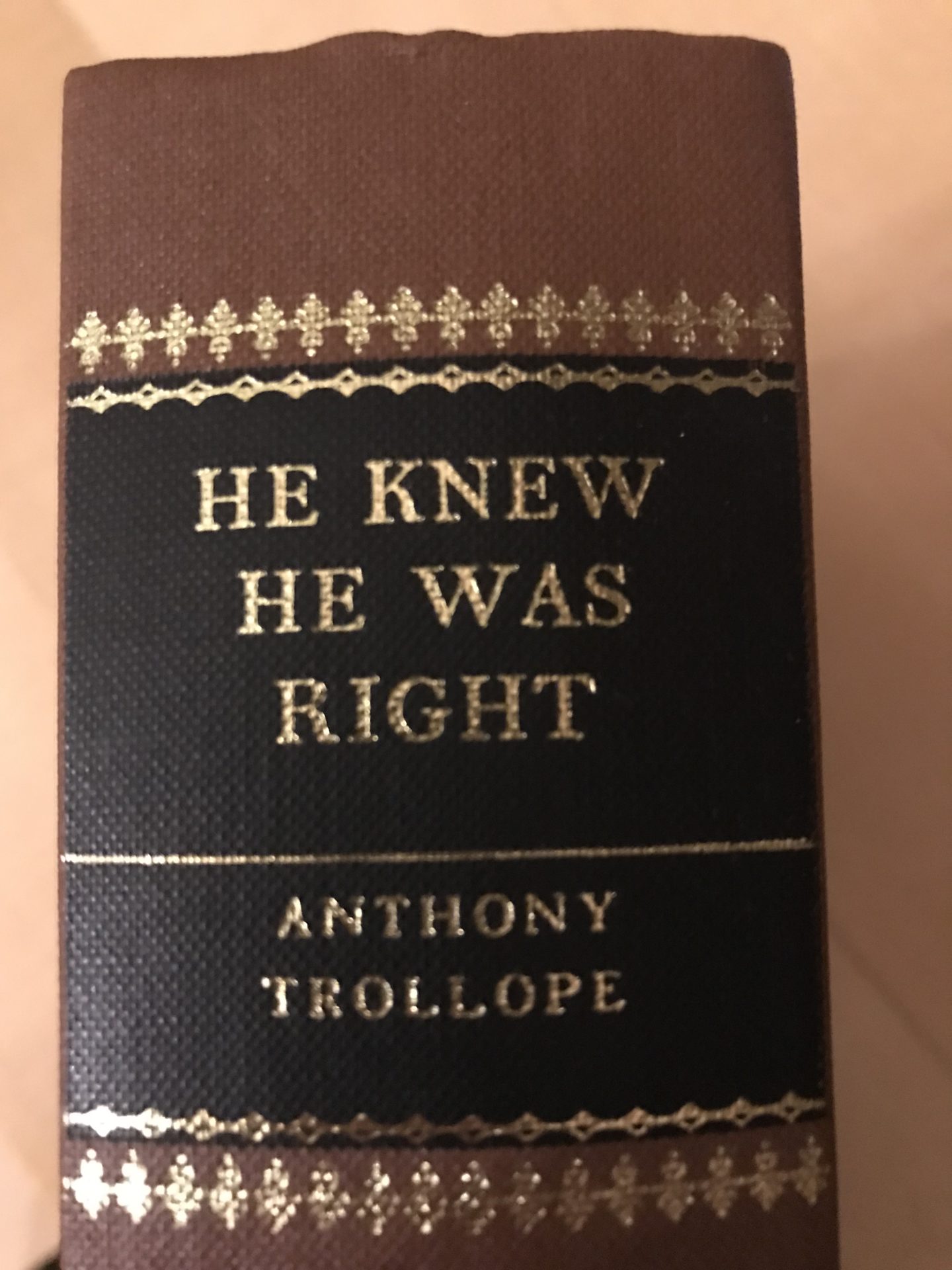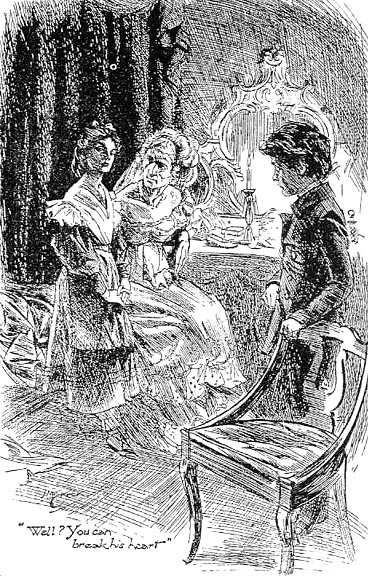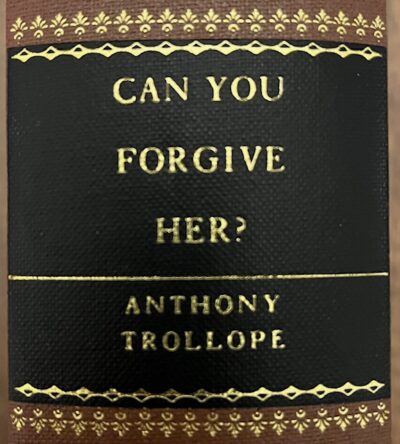In “He Knew He Was Right”, Anthony Trollope shows he is an outstanding writer on relationships between the sexes. Lessons on gender from 1869 are still 100% relevant.
How men think, how women think and whether there is a difference is one of the abiding puzzles of life. We all want to understand other people. Many of us want to understand the opposite sex.
How to understand women, or men? You can do worse than start with Trollope’s He Knew He Was Right.
The 19th century British writer Anthony Trollope was one of the wisest writers on relationships between the sexes. My piece Trollope: 11 reasons to read him sets out his awesome qualities (links in bold italics are to other posts on this blog) – including the fact that much of what he wrote is still 100% current. More Trollope links are at the end of this post.
Trollope’s 1869 novel He Knew He Was Right examines relations between the sexes in detail. You can explore quotations from the book below on men (6), on women (9), on relationships (22), on literary criticism (1) and finally (as a reminder of Trollope’s wit and continued relevance) on “the railway sandwich”.
Nothing changes. Enjoy He Knew He Was Right!
My Trollope Society edition of “He Knew He Was Right” has 823 pages
“He knew he was right”: On Men
- The reader may be quite certain that Colonel Osborne had no premeditated evil intention when he allowed himself to become the intimate friend of his old friend’s daughter. There was nothing fiendish in his nature. He was not a man who boasted of his conquests. He was not a ravening wolf going about seeking whom he might devour, and determined to devour whatever might come in his way; but he liked that which was pleasant; and of all pleasant things the company of a pretty clever woman was to him the pleasantest. [Comment: a classic explanation of how people who are not evil do evil things]
- The Acrobats was a very distinguished club, into which it was now difficult for a young man to find his way, and almost impossible for a man who was no longer young, and therefore known to many. It had been founded some twenty years since with the idea of promoting muscular exercise and gymnastic amusements; but the promoters had become fat and lethargic, and the Acrobats spent their time mostly in playing whist, and in ordering and eating their dinners.
- And as for himself, though he acknowledged to himself that the lumbago pinched him now and again, so that he could not rise from his chair with all the alacrity of youth, yet, when he walked along Pall Mall with his coat properly buttoned, he could not but observe that a great many young women looked at him with admiring eyes. [Comment: men of a certain age often believe themselves to make such an impression]
- He believed himself to be a Bohemian, too much of a Bohemian to enjoy a domestic fireside with children and slippers.
- Trevelyan had now become so accustomed to being told by everybody that he was wrong, and was at the same time so convinced that he was right, that he regarded the perversity of his friends as a part of the persecution to which he was subjected… in the midst of all his misery, it never occurred to him to inquire of himself whether it might be possible that his old friends were right, and that he himself was wrong.
- Now Trevelyan was, in truth, mad on the subject of his wife’s alleged infidelity. He had abandoned everything that he valued in the world, and had made himself wretched in every affair of life, because he could not submit to acknowledge to himself the possibility of error on his own part.
“He knew he was right”: On Women
- The lot of a woman; as she often told herself, was wretched, unfortunate, almost degrading. For a woman such as herself there was no path open to her energy, other than that of getting a husband.
- ‘It is a very poor thing to be a woman,’ she said to her sister. ‘It is perhaps better than being a dog,’ said Nora; ‘but, of course, we can’t compare ourselves to men.’
- She was not in love with him never would be, never could be in love with him. Reader, you may believe in her so far as that. But where is the woman, who, when she is neglected, thrown over, and suspected by the man that she loves, will not feel the desire of some sympathy, some solicitude, some show of regard from another man? [Comment: where, indeed?]
- Assuredly it would be a very good thing for her to become Mrs Gibson, if only she could create for herself some attachment for the man.
- ‘But, of course, he will ask me whether I love him; and what am I to say? Aunt Stanbury says that I am to love him. “Begin to love him at once,” she said this morning. I would if I could, partly for her sake, and because I do feel that it would be so respectable.’
- American women are taught by the habits of their country to think that men should give way to them more absolutely than is in accordance with the practices of life in Europe. A seat in a public conveyance in the States, when merely occupied by a man, used to be regarded by any woman as being at her service as completely as though it were vacant. [Comment: Trollope seems impressed by American women – see also below]
- with no women is a speedy intimacy so possible, or indeed so profitable, as with Americans. They fear nothing, neither you nor themselves; and talk with as much freedom as though they were men.
- ‘I hate that word woman, sir, uttered with the half-hidden sneer which always accompanies its expression from the mouth of a man.’ ‘Sneer, Miss Petrie?’ ‘I quite allow that it is involuntary, and not analysed or understood by yourselves. If you speak of a dog, you intend to do so with affection, but there is always contempt mixed with it. The so-called chivalry of man to woman is all begotten in the same spirit. I want no favour, but I claim to be your equal.’ [Comment: magnificent example of Trollope on the sexes]
- ‘Papa says that you are nobody, and that you haven’t got an income; and thinks that I had better go back and be an old maid at the Mandarins.’ ‘And what do you think yourself, Nora?’ ‘What do I think? As far as I can understand, young ladies are not allowed to think at all. They have to do what their papas tell them.’
On relationships
- ‘I don’t care about reason. He is your husband, and if he wishes it, you should do it.’
- No task is so hopeless as that of interfering between a man and his wife.
- It is to be feared that men in general do not regret as they should do any temporary ill-feeling, or irritating jealousy between husbands and wives, of which they themselves have been the cause.
- Women, with us [men], are slow to burn their household gods. It happens, however, occasionally, as we are all aware, that the outward garments of a domestic deity will be a little scorched;
- When such tempests occur in a family, a woman will generally suffer the least during the thick of the tempest. While the hurricane is at the fiercest, she will be sustained by the most thorough conviction that the right is on her side, that she is aggrieved, that there is nothing for her to acknowledge, and no position that she need surrender. Whereas her husband will desire a compromise, even amidst the violence of the storm. But afterwards, when the wind has lulled, but while the heavens around are still all black and murky, then the woman’s sufferings begin. When passion gives way to thought and memory, she feels the loneliness of her position, the loneliness, and the possible degradation.
- ‘To speak out, I can’t understand that a wife should be worth watching who requires watching.’
- Was love to lead only to this, a dull life, with a woman who had lost the beauty from her cheeks, and the gloss from her hair, and the music from her voice, and the fire from her eye and the grace from her step, and whose waist an arm should no longer be able to span?
- ‘I can’t understand, for the life of me; why you should not live together just like any other people,’ said Mrs Outhouse, whose woman’s spirit was arising in her bosom. ‘When people are married, they must put up with something at least, most always.’
- Brooke Burgess, as desired, had left the house before eleven, having taken upon himself, when consulted, to say in the mildest terms, that he thought that, in general, young women should not be asked to marry if they did not like to, which opinion had been so galling to Miss Stanbury that she had declared that he had so scolded her, that she did not know whether she was standing on her head or her heels.
- Her education had been of that nature which teaches girls to believe that it is a crime to marry a man without an assured income. Assured morality in a husband is a great thing. Assured good temper is very excellent. Assured talent, religion, amiability, truth, honesty, are all desirable. But an assured income is indispensable.
- She threw herself on the bed and sobbed, and then hid her face and was conscious that in spite of this acting before herself she was the happiest girl alive. He had behaved very badly of course, he had behaved most wickedly, and she would tell him so some day. But was he not the dearest fellow living?
- Mr Gibson was no doubt very much in love with Dorothy Stanbury. So much we may take for granted. He, at least, believed that he was in love with her. He would have thought it wicked to propose to her had he not been in love with her. But with his love was mingled a certain amount of contempt which had induced him to look upon her as an easy conquest.
- Readers will say that if she loved Hugh Stanbury with all her heart, there could be nothing of regret in her reflections. But we are perhaps accustomed in judging for ourselves and of others to draw the lines too sharply, and to say that on this side lie vice, folly, heartlessness, and greed and on the other honour, love, truth, and wisdom, the good and the bad each in its own domain. But the good and the bad mix themselves so thoroughly in our thoughts, even in our aspirations, that we must look for excellence rather in overcoming evil than in freeing ourselves from its influence. [Comment: a good explanation of the moral ambiguities of life.]
- ‘What is it you request of my daughter?’ ‘Obedience, simply that. Submission to my will, which is surely a wife’s duty.’
- ‘She must be crushed in spirit, Lady Rowley, before she can again become a pure and happy woman.’
- ‘Tell me that you love me, Thomas,’ she said. ‘Of course I love you.’ The question is not a pleasant one when put by a lady to a gentleman whose affections towards her are not strong, and it requires a very good actor to produce an efficient answer… ‘I hope you do, Thomas. It would be sad, indeed, if you did not. You are not weary of your Camilla are you?’ For a moment there came upon him an idea that he would confess that he was weary of her, but he found at once that such an effort was beyond his powers. ‘How can you ask such a question?’ he said. [Comment: an excruciating account of a tired relationship]
- Lady Rowley thought that she could compound for all misfortunes in other respects, if she could have a daughter married to the future Lord Peterborough. She had been told in England that he was faultless: not very clever, not very active, not likely to be very famous; but, as a husband, simply faultless.
- That feeling came upon him which must surely be acknowledged by all engaged young men when they first find themselves encouraged by mammas in the taking of liberties which they have hitherto regarded as mysteries to be hidden, especially from maternal eyes, that feeling of being a fine fat calf decked out with ribbons for a sacrifice.
- There is nothing that a woman will not forgive a man, when he is weaker than she is herself.
- ‘I don’t mean to submit to him at all, Lady Milborough, of course not. I am going to marry for liberty.’ ‘My dear, what you say, you say in joke; but a great many young women of the present day do, I really believe, go up to the altar and pronounce their marriage vows, with the simple idea that as soon as they have done so, they are to have their own way in everything. And then people complain that young men won’t marry! Who can wonder at it?’ ‘I don’t think the young men think much about the obedience,’ said Nora. ‘Some marry for money, and some for love. But I don’t think they marry to get a slave.’
- Had she been able always to keep her neck in the dust under his foot, their married life might have been passed without outward calamity,
- She got into her sister’s bed, and there she told the tale of her tardy triumph. ‘He declared to me at last that he trusted me,’ she said, almost believing that real words had come from his lips to that effect. Then she fell into a flood of tears, and after a while she also slept.
On Literary Criticism
- ‘Who would ever think of learning to live out of an English novel?’
On the railway sandwich
- We are often told in our newspapers that England is disgraced by this and by that; by the unreadiness of our army, by the unfitness of our navy, by the irrationality of our laws, by the immobility of our prejudices, and what not; but the real disgrace of England is the railway sandwich—that whited sepulchre, fair enough outside, but so meagre, poor, and spiritless within, such a thing of shreds and parings, such a dab of food, telling us that the poor bone whence it was scraped had been made utterly bare before it was sent into the kitchen for the soup pot.
I hope you have enjoyed this selection of quotations from He Knew He Was Right. Was he right? Discuss.
More Trollope
Other posts related to Trollope or relations between the sexes include:
- Trollope vs Black Panther: life lessons (exploring also P G Wodehouse and turtles)
- Lady Anna: cruelty, feminism and power 7/10
- Museum of Innocence: how men think? 8/10 (including how the protagonist of Orhan Pamuk’s masterpiece fakes his emotions; relishes and exploits his power over women; continues to lie despite knowing it is wrong; rarely makes any attempt to communicate honestly; and never displays any loyalty or respect towards women)
- “Prep”: is this how women think? 7/10 (one of the toughest-to-read books I have come across) and finally,
- W. Somerset Maugham on sex, turnips and the meaning of life
I hope you have enjoyed these quotations from He Knew He Was Right. All comments, and shares, welcome!
P.S. If you enjoy fresh, original writing, please subscribe to my newsletter (you can unsubscribe anytime you wish). I’ll send you a free “Hotel Story” to say thanks! Or I would be delighted if you would like to follow me on Facebook.







